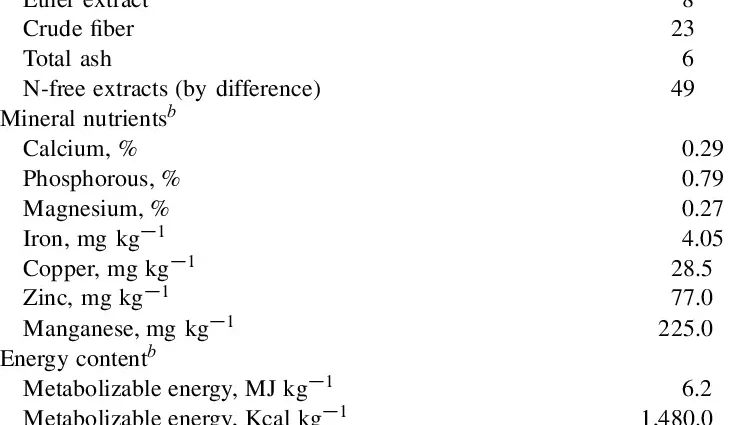Nutritional value and chemical composition.
| Nutrient | Quantity | Norm** | % of the norm in 100 g | % of the norm in 100 kcal | 100% normal |
| Proteins | 8.4 g | 76 g | 11.1% | 905 g | |
| Fats | 49.6 g | 56 g | 88.6% | 113 g | |
| Water | 7.5 g | 2273 g | 0.3% | 30307 g | |
| Essential Amino Acids | 2.79 g | ~ | |||
| Arginine * | 1.31 g | ~ | |||
| valine | 0.504 g | ~ | |||
| Histidine * | 0.143 g | ~ | |||
| Isoleucine | 0.378 g | ~ | |||
| leucine | 0.622 g | ~ | |||
| lysine | 0.328 g | ~ | |||
| methionine | 0.202 g | ~ | |||
| threonine | 0.302 g | ~ | |||
| tryptophan | 0.076 g | ~ | |||
| phenylalanine | 0.378 g | ~ | |||
| Replaceable amino acids | 5.31 g | ~ | |||
| alanine | 0.351 g | ~ | |||
| Aspartic acid | 0.661 g | ~ | |||
| glycine | 0.388 g | ~ | |||
| Glutamic acid | 1.387 g | ~ | |||
| Proline | 0.284 g | ~ | |||
| serine | 0.407 g | ~ | |||
| tyrosine | 0.226 g | ~ | |||
| Cysteine | 0.153 g | ~ | |||
| Sterols | |||||
| beta sitosterol | 200 mg | ~ | |||
| Saturated fatty acids | |||||
| Saturated fatty acids | 37.84 g | max 18.7 г | |||
| 8: 0 Caprylic | 1.64 g | ~ | |||
| 10: 0 Capric | 1.88 g | ~ | |||
| 12: 0 Lauric | 21.08 g | ~ | |||
| 14: 0 Myristic | 5.9 g | ~ | |||
| 16: 0 Palmitic | 3.12 g | ~ | |||
| 18: 0 Stearin | 3.67 g | ~ | |||
| 20: 0 Arachinic | 0.54 g | ~ | |||
| Monounsaturated fatty acids | 7.19 g | min 16.8 г | 42.8% | ||
| 16: 1 Palmitoleic | 0.25 g | ~ | |||
| 18: 1 Olein (omega-9) | 6.94 g | ~ | |||
| Polyunsaturated fatty acids | 1.19 g | from 11.2 to 20.6 | 10.6% | ||
| 18: 2 Linoleic | 1.19 g | ~ |
The energy value is 0 kcal.
Energy value, or calorie content Is the amount of energy released in the human body from food during digestion. The energy value of a product is measured in kilo-calories (kcal) or kilo-joules (kJ) per 100 grams. product. The kilocalorie used to measure the energy value of food is also called the “food calorie,” so the kilo prefix is often omitted when specifying calories in (kilo) calories. You can see detailed energy tables for Russian products.
The nutritional value – the content of carbohydrates, fats and proteins in the product.
Nutritional value of a food product – a set of properties of a food product, in the presence of which the physiological needs of a person for the necessary substances and energy are satisfied.
Vitamins, organic substances required in small quantities in the diet of both humans and most vertebrates. Vitamins are usually synthesized by plants rather than animals. The daily human need for vitamins is only a few milligrams or micrograms. Unlike inorganic substances, vitamins are destroyed by strong heating. Many vitamins are unstable and “lost” during cooking or food processing.










